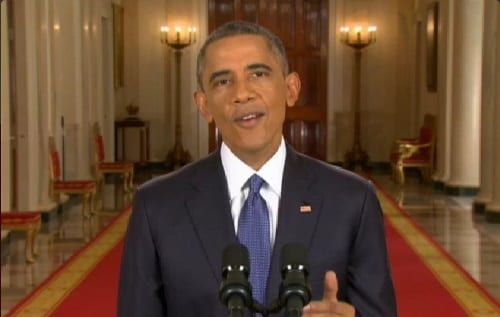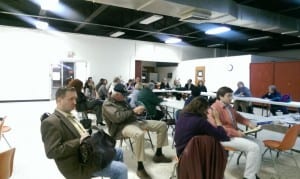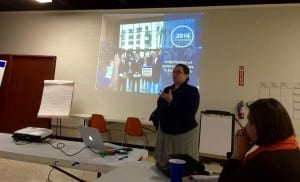If you are a Texan, chances are good that you have met someone who is, knows or is directly related to an undocumented immigrant living in the United States. 16.6 million families in the United States are of “mixed status” — households where American Citizens and undocumented persons live under the same roof. As such, President Obama’s Immigration Accountability Executive Actions, announced tonight, will have a massive effect on the Lone Star State.
On this historic night, here are the basics, directly from a White House Press coordination..
The President’s Immigration Accountability Executive Actions will help secure the border, hold nearly 5 million undocumented immigrants accountable, and ensure that everyone plays by the same rules. Acting within his legal authority, the President is taking an important step to fix our broken immigration system.
These executive actions crack down on illegal immigration at the border, prioritize deporting felons not families, and require certain undocumented immigrants to pass a criminal background check and pay their fair share of taxes as they register to temporarily stay in the U.S. without fear of deportation.These are common sense steps, but only Congress can finish the job. As the President acts, he’ll continue to work with Congress on a comprehensive, bipartisan bill—like the one passed by the Senate more than a year ago—that can replace these actions and fix the whole system.
Three critical elements of the President’s executive actions are:
Cracking Down on Illegal Immigration at the Border: The President’s actions increase the chances that anyone attempting to cross the border illegally will be caught and sent back. Continuing the surge of resources that effectively reduced the number of unaccompanied children crossing the border illegally this summer, the President’s actions will also centralize border security command-and-control to continue to crack down on illegal immigration.Deporting Felons, Not Families: The President’s actions focus on the deportation of people who threaten national security and public safety. He has directed immigration enforcement to place anyone suspected of terrorism, violent criminals, gang members, and recent border crossers at the top of the deportation priority list.
Accountability – Criminal Background Checks and Taxes: The President is also acting to hold accountable those undocumented immigrants who have lived in the US for more than five years and are parents of U.S. citizens or Lawful Permanent Residents. By registering and passing criminal and national security background checks, millions of undocumented immigrants will start paying their fair share of taxes and temporarily stay in the U.S. without fear of deportation for three years at a time.
As listed above, these executive actions are not the commands of a king, or the harsh over-extensions of a power-hungry dictator. They are common-sense reforms that honor the law of the United States, while recognizing the reality of those living within our borders. Your neighbors, your classmates, your friends and your community members are the ones that will directly affected.
But even if you are not someone related to an undocumented person, the President’s actions help you as well. Here’s why…
A known community is a safer community. People that live in fear of deportation also live in fear of the law, and of public actions in general. Imagine that you are someone who is mugged, and the only witness is an undocumented person. Would they be willing to go with you to the police station to identify your attacker? Or someone in a traffic accident… what’s the likelihood that the person who hit you is going to drive off and never be seen again? These are real issues that everyone in today’s society deals with. Our law enforcement will now be able to do their jobs better because more people in our communities can be true eyes and ears for bad actors.
A known community is a more prosperous community. Bringing people out of the shadows decimate the black markets they are forced to rely upon for goods and services. Their money, and their tax dollars enters the books, and provides more direct contributions to our schools, cities and states. Legal working abilities also decimate the severe wage theft that many undocumented persons experience, but are too afraid to discuss.
There will be much more to assess in the coming days. But for tonight, millions of people across this country can rest easier and get ready for a new chapter in their lives.
The venerable Dos Centavos has more.



